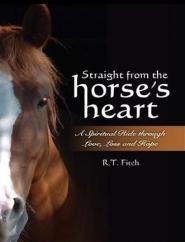SOURCE: eurekalert.org
IMAGE: Horses with a rare nerve condition called equine grass sickness have similar signs of disease as people with conditions such as Alzheimer’s, a University of Edinburgh study has found. (Photo: The Royal (Dick) School of Veterinary Studies, University of Edinburgh)
Horse sickness shares signs of human brain disorders, study finds
University of Edinburgh
Horses with a rare nerve condition have similar signs of disease as people with conditions such as Alzheimer’s, a study has found.
The findings shed new light on the causes of the rare but predominately fatal horse condition and could help to develop new tools for diagnosing the illness.
Scientists say that horses affected by the disease – called equine grass sickness – could also hold clues to human conditions.
Grass sickness attacks nerve cells in horses but the causes of the disease are unknown. It causes gastric upset and muscle tremor and can kill within days. If diagnosed quickly, animals can sometimes be nursed back to health.
Researchers from the University of Edinburgh’s Roslin Institute and Royal (Dick) School of Veterinary Studies looked at nerve tissue from six horses that had died from equine grass sickness in a bid to investigate the causes of the condition.
They found that the horse tissue contained proteins that are commonly seen in the brains of people with Alzheimer’s disease – such as the build-up of amyloid protein.
In total, 506 different proteins were found to be altered in nerve tissue from horses with grass sickness, compared with animals that had died from other causes.
This knowledge could help to develop tests for detecting the condition in horses, which can be tricky to diagnose.
Around two per cent of horses die from grass sickness each year in the UK. The disease occurs almost exclusively in grass-fed animals, including ponies and donkeys. A similar condition is thought to affect cats, dogs, hares, rabbits, llamas and possibly sheep.
Categories: Horse Health, Horse News










Dear Strait from the horses heart, How heart breaking!! Vets Need to look into how much chemical pesticides are fed to animals through grass, etc. Also, the amount of chemical pesticides used on the animals their selves These nerve diseases are tied directly to chemicals, specially Chemical pesticides.
SINCERELY, Stephanie Hundemer[ð][ð¦][ð][ð¶][ð©][ð¬][ð¾]
LikeLike
Botulism hiding in your hay
http://www.horsecollaborative.com/equine-botulism-hiding-in-your-hay
LikeLike
The botulism vaccine was one of the shots my horse got every year – the first year I think there were 2 or 3 injections but after that it was simply a booster. I just considered it to be one of the necessary vaccines he needed.
LikeLike